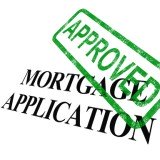How to Finance Rental Property
Knowing how to finance rental property will save you time, money and effort. Learn the correct steps of financing a rental property here.
1. Review Your Credit Scores Before Applying for a Loan
Your credit score is the one of the first things mortgage lenders will look when you approach them for a rental property loan.
In the eyes of banks and lenders, an excellent credit score will a safer and more reliable borrower. High credit scores and a clean credit history won't just boost your chances of getting loan approval - It also lowers the mortgage rates so financing rental property will be cheaper for you. Most major mortgage lenders will require borrowers to have a minimum credit score of 600 to 650.
To obtain your credit report, you can turn to any of the three credit reporting agencies - Equifax , Experian or TransUnion.
Once you have your credit report, go through it carefully and watch out for any glaring mistakes or outdated details that can bring down your credit scores. Contact the relevant credit reporting agency and get them to correct the errors for you.
Before you finance a rental property, avoid taking drastic actions that will degrade your credit scores. This includes closing any credit accounts that are in good standing, raking up big credit bills or taking out another bank loan - Click here for more advice on how to lower your mortgage rates.
2. Decide on Your Down Payment and Total Loan Duration
Lenders typically demand larger down payments for rental properties (versus personal residences). We can't really blame them since statistically rental property investors have a higher chance of defaulting on their property loans (vs home owners).
Typically lenders will ask for a minimum down payment of 20% - If you're buying a larger rental property with 5 or more units, then a larger down payment of about 30% will be required.
If you're footing down less than 20% down payment, most lenders will impose markedly higher interest rates (if they even approve your loan in the first place).
So can you do if you can't afford this 20% down payment for rental property financing?
You can consider using a home equity line of credit (HELOC) to cover part of the down payment. When you apply for a HELOC, you will gain a credit line to finance rental property by pledging your own home as a collateral. This credit line will also allow you to borrow money to cover other expenses such as renovation costs.
A rental property loan duration varies from 10 to 30 years. If you choose a shorter loan duration, your monthly mortgages will be higher but the benefit is that you'll end paying less interest overall. Our free mortgage payment calculator will show you exactly how much mortgage you'll be paying per month for different down payments amount and loan durations.
NEXT: More Steps on How to Finance Rental Property


